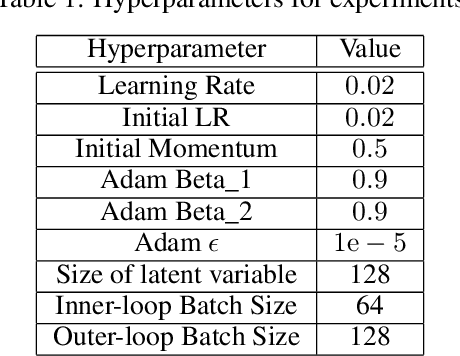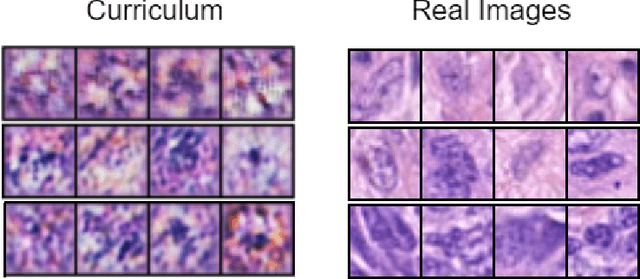End to End Generative Meta Curriculum Learning For Medical Data Augmentation
Paper and Code
Dec 20, 2022



Current medical image synthetic augmentation techniques rely on intensive use of generative adversarial networks (GANs). However, the nature of GAN architecture leads to heavy computational resources to produce synthetic images and the augmentation process requires multiple stages to complete. To address these challenges, we introduce a novel generative meta curriculum learning method that trains the task-specific model (student) end-to-end with only one additional teacher model. The teacher learns to generate curriculum to feed into the student model for data augmentation and guides the student to improve performance in a meta-learning style. In contrast to the generator and discriminator in GAN, which compete with each other, the teacher and student collaborate to improve the student's performance on the target tasks. Extensive experiments on the histopathology datasets show that leveraging our framework results in significant and consistent improvements in classification performance.
 Add to Chrome
Add to Chrome Add to Firefox
Add to Firefox Add to Edge
Add to Edge